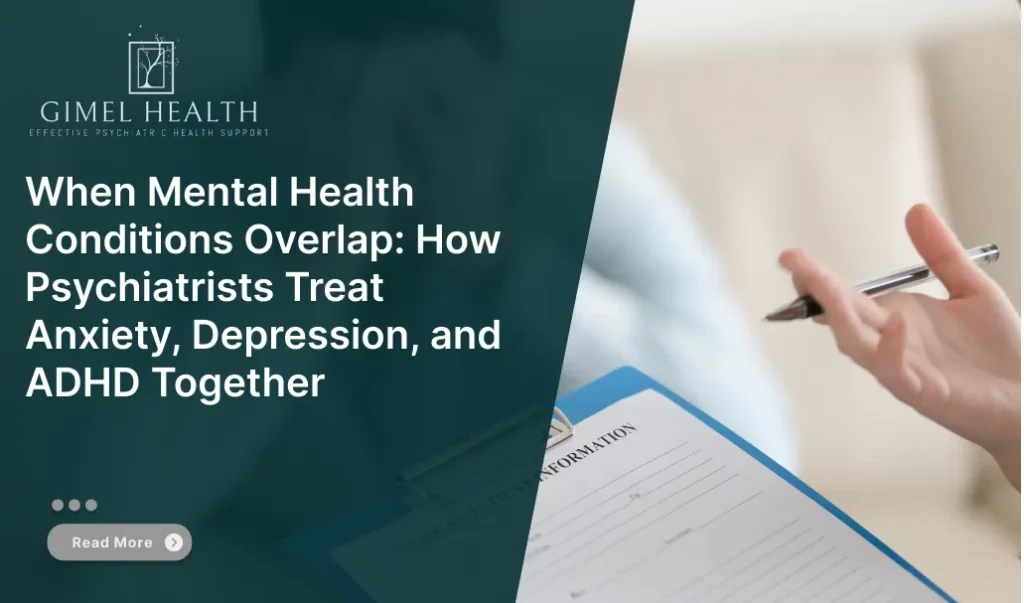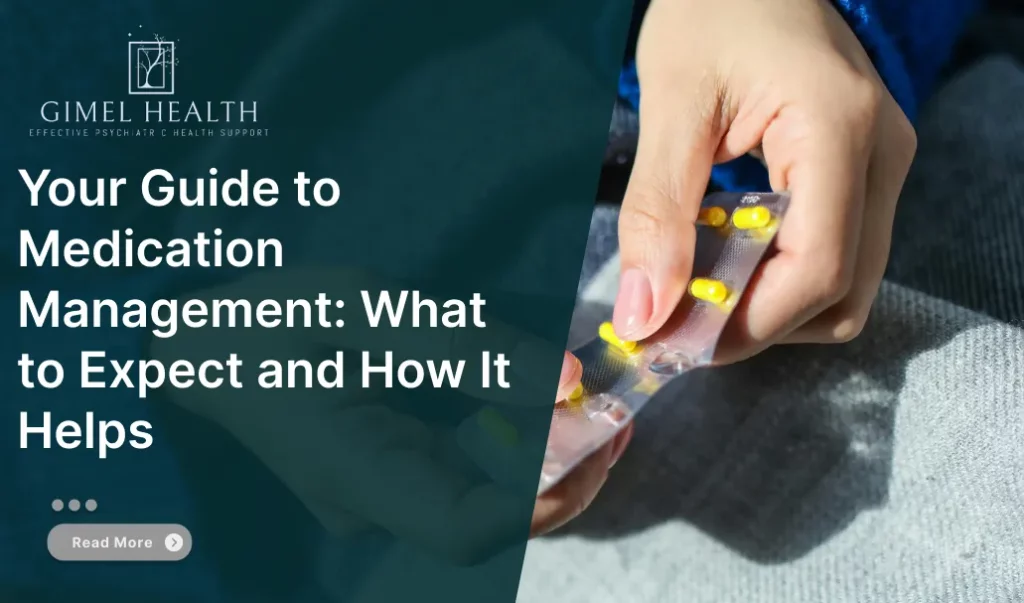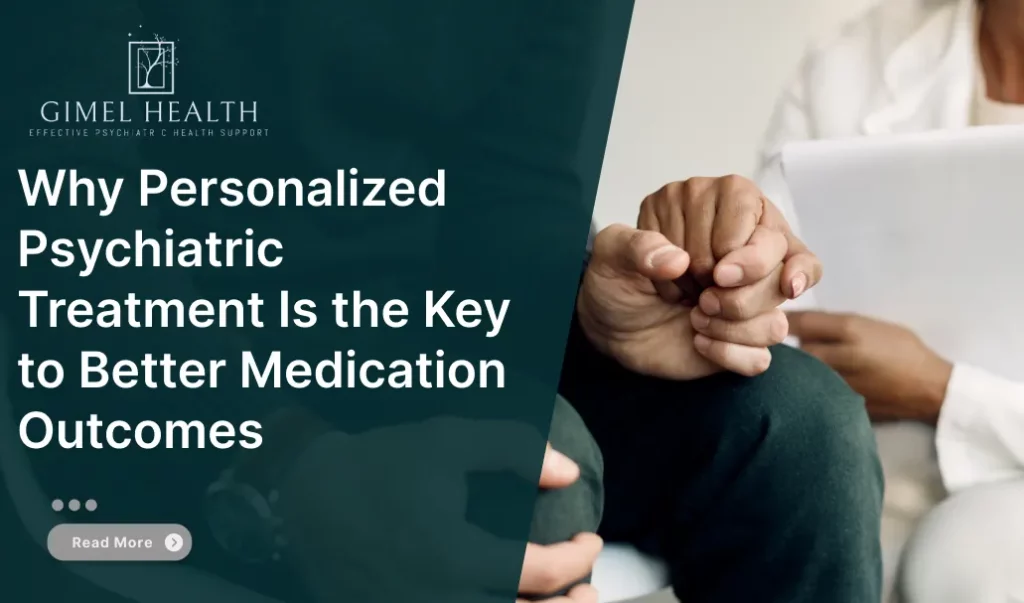
When Mental Health Conditions Overlap: How Psychiatrists Treat Anxiety, Depression, and ADHD Together
If you have ever wondered why your anxiety medication helps your worry but not your focus, or why treating depression

Medication management is one of the most effective ways to create stability for people who face ongoing mental health challenges. Many individuals in New York rely on expert support to stay consistent with their prescriptions. They also need help avoiding side effects and tracking progress over time. If you run a practice or support patients here in the state, you know how much trust this process requires. That is where strong Medication Management NY services make a difference.
Medication management blends clinical oversight with ongoing guidance. It gives patients a structured plan that helps them stay safe. It also improves long term outcomes. When done well, it reduces stress for everyone involved.
Many patients struggle to stay consistent with their medications. Some forget doses. Others feel unsure about how a new prescription will affect them. Many worry about side effects. Without support, these concerns can lead to missed doses or early discontinuation. That puts the patient at risk. It also creates more work for practices and care teams.
Medication management solves these issues with a clear and steady process. A licensed provider monitors the patient. They track symptoms. They adjust dosages as needed. They guide the patient through each step. This approach helps reduce unwanted reactions. It also helps the patient follow the plan with confidence. Gimel Health focuses on these details to help patients feel secure.
Good medication management also creates better communication. Patients receive answers to their questions. They understand why they take each medication. They know what progress looks like. This clarity helps them stay engaged and more likely to follow their plan.

The first step is a full evaluation. A provider reviews symptoms. They look at medical history. They ask about past medication use. They also check for interactions. This gives them a complete picture of the patient’s health.
Next comes the treatment plan. The provider selects the right medication. They also choose a starting dose. They outline the goals of care. They explain how the medication should work. The patient knows what to expect before they begin.
Follow up visits are the core of medication management. These visits help the provider track progress. They check for changes in mood or behavior. They ask about sleep, appetite, and daily function. They also look for side effects. If something is not working, they adjust the plan. These small updates help keep the patient on track. Gimel Health uses this steady model to deliver consistent and safe care.
Many providers also combine medication with therapy or lifestyle changes. Patients may work on sleep habits. They may learn stress management skills. Combining these tools often leads to better results. Medication alone helps. But medication paired with skills and support often leads to stronger outcomes.
Medication management improves patient stability. Stable patients improve the flow of your practice. They need fewer emergency visits. They also show more consistent improvement.
It also boosts trust. When patients feel supported, they stay with their provider. They follow treatment plans. They communicate more openly. That leads to stronger outcomes and longer patient relationships.
Medication management also reduces risk. Providers catch side effects early. They adjust dosages before a problem grows. They make safer decisions with better data. This protects both patients and the practice.

Most patients feel a sense of relief once they begin structured medication management. They know someone is watching their progress. They know they will have guidance. They also know they can reach out when something feels off.
Patients can expect simple check-ins. They last a short time. They allow space to talk about symptoms and concerns. Providers use these visits to track progress and make sure the plan is working.
Over time, the process becomes familiar. Patients notice improvements. They gain confidence. They also begin to understand how their medications support them. This helps them stay committed to long term care.
Working with a specialized team ensures accuracy and safety. It gives your practice a reliable structure. It also keeps your patients protected. Skilled providers bring experience with complex cases. They know how to guide patients through sensitive changes. They also stay updated on new medications.
A strong partner improves the quality of care. It also improves patient satisfaction. When you invest in expert medication management support from Gimel Health, you invest in better outcomes for the patients you serve.

If you have ever wondered why your anxiety medication helps your worry but not your focus, or why treating depression

If you have ever started psychiatric medication and wondered why it did not help the way you expected, you are

Anxiety is one of the most common mental health challenges facing adults and professionals today. If you are seeking anxiety
Your journey to better mental health starts here. With advanced expertise in biology and psychiatry, I build exclusive medication plans backed by science. Contact me to schedule your initial consultation.
(201) 815-4351
440 West Str, Ste 307, Fort Lee Bergen County NJ 07024
Common effects include fatigue, nausea, appetite changes, and sleep issues. Many fade over time with proper side effect management. A provider can make a medication adjustment to improve comfort and support patient safety. They also use symptom tracking to monitor progress. This helps maintain treatment adherence.
Most patients attend visits every few weeks at first. As they stabilize, sessions may shift to monthly or quarterly. Each visit includes a follow up assessment and medication monitoring to review progress. The timeline depends on goals, symptoms, and the personalized treatment plan. This helps ensure long term stability.
Yes. Many patients see better results when medication is paired with therapy. This approach supports integrated care and adds strong therapeutic support. It also improves treatment adherence since patients feel more supported. Providers coordinate care to match the patient’s behavioral health needs.
A medication review is a structured appointment where a provider assesses all current prescriptions. They check for interactions, safety concerns, or the need for updates. This process uses clinical oversight and may include a brief psychiatric evaluation. The goal is to maintain medication effectiveness and protect patient health.
Providers use regular visits to monitor symptoms, mood, sleep, and daily function. They also use medication monitoring and symptom tracking tools. This data helps guide any needed adjustments. Strong care coordination ensures each mental health provider stays aligned with the patient’s needs. This supports safe and effective ongoing treatment.
We use cookies to improve your experience on our site. By using our site, you consent to cookies.
Manage your cookie preferences below:
Essential cookies enable basic functions and are necessary for the proper function of the website.
These cookies are needed for adding comments on this website.
Google reCAPTCHA helps protect websites from spam and abuse by verifying user interactions through challenges.
Google Tag Manager simplifies the management of marketing tags on your website without code changes.
Statistics cookies collect information anonymously. This information helps us understand how visitors use our website.
Vimeo is a video hosting platform for high-quality content, ideal for creators and businesses to showcase their work.
Service URL: vimeo.com (opens in a new window)
You can find more information in our Cookie Policy and Privacy Policy.